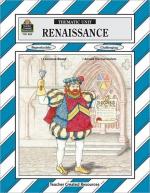|
This section contains 7,675 words (approx. 26 pages at 300 words per page) |

|
Humanism.
As the dawn of the sixteenth century approached, humanism's influence on music grew increasingly important. Humanism was a complex literary movement that had its origins in the works of fourteenth-century intellectuals like Francesco Petrarch and Giovanni Boccaccio. The term itself is a nineteenth-century creation crafted to describe those in the Renaissance who practiced the studia humanitatis ("humane studies"). Thus humanism, the source for modern notions of the humanities, was not a philosophy, but a curriculum. As such, it differed greatly from the scholastically influenced studies that were dominant in most European universities at the time. The university system based its curriculum on logic, Aristotelian natural philosophy, and theology. By contrast, the humanists championed training in rhetoric (graceful speaking and writing), history, moral philosophy, and the languages. These disciplines, they argued, were better suited to creating virtuous human...
|
This section contains 7,675 words (approx. 26 pages at 300 words per page) |

|




